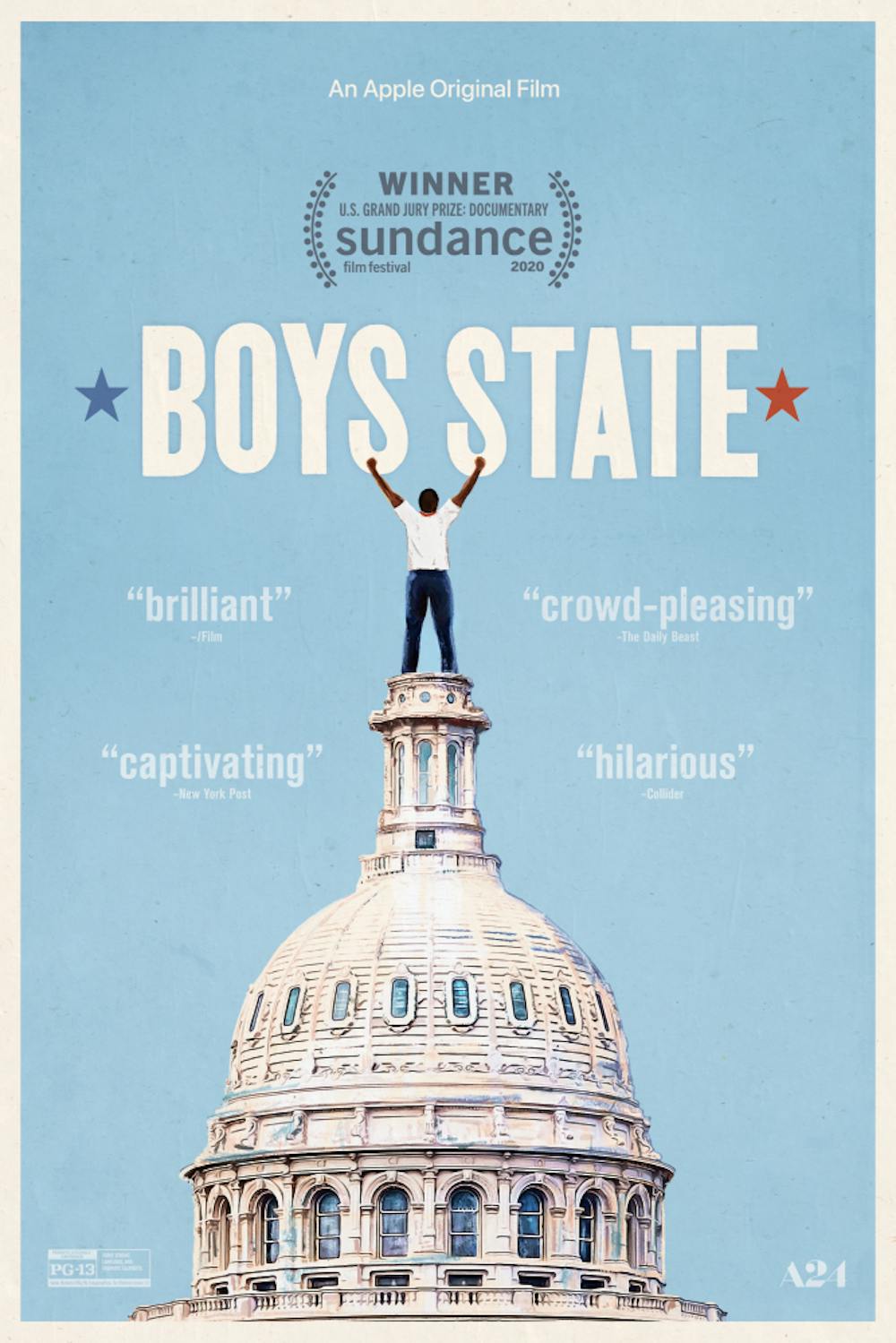“Boys State,” directed by filmmakers Jesse Moss and Amanda McBaine, swept 2020 festival circuits and won the U.S. Documentary Competition Grand Jury plerize at the Sundance Film Festival. The documentary was critically acclaimed for its analogizing of grand-scale American politics in American Legion’s Texas Boys State, a conference where a thousand teenage boys attempt to build a model representative government.
Provided by Apple Original Films and A24 at Brown in partnership with the Brown Arts Initiative, Ivy Film Festival, Brown Votes and the Watson Institute for International and Public Affairs, the award-winning documentary will have an advance virtual screening on October 9, followed by a panel with the filmmakers and one of the documentary subjects. The screening is part of the JFK Jr. Initiative for Documentary Film and Social Progress series.
The film, which was initially released in January, is centered around four students with a wide variety of political beliefs, ranging from Napoleon-esque populism to traditional federalism. Pitted against conservative West Point-destined, blonde-haired boys, however, individuals like Steven Garza, a Hispanic son of immigrants, and René Otero, one of the only Black students in the entire program, are filmed as the program’s progressive, liberal underdogs.
At the conference, boys are randomly divided into two meaningless party labels: “Federalist” and “Nationalist.” Any boy who wants to achieve the end goal — gubernatorial election — of Boys State’s mock politicking must collect signatures, participate in debates and run a campaign in their party.
What follows is an eager, snappily-directed film that seems to say that the audience should find an obvious connection between “Boys State” and our current political climate, the implosion of political leadership and the importance of democracy. The Los Angeles Times, in a review of “Boys State,” noted that the theatrical, miniature political squabbles in “Boys State” are “a sign of its curious integrity — its spot-on approximation of a real-world political system beset by corruption, inefficiency and the whims of small-minded men.” Titularly, the Boys State program practically asks to be criticized on the account of political toxic masculinity.
The film captures its subjects, who aim to win the mock election, as they emphasize a sort of bipartisan political “unity” that is important to politics: the idea that one can achieve true democracy, or virtuous politics, through ideals such as communicativea rhetoric, empathy, understanding and civic duty.
In a virtual press Q&A provided by A24’s collegiate outreach, the documentary’s subjects as well as directors echoed the program’s broad stroke ideas of the conflation between true democracy and bipartisan unity. “You have to harness these disparate opinions,” Director Moss stated, referring to how the Boys State program is really a competition of election, not opinion. “How you build majority; How you get elected; How you find common ground — This is a question of our time.”
Garza, who won Boys State 2019, echoed these sentiments. “Everyone genuinely is not too focused with what party they identify with but what policies are proposed,” said Garza. “Can we put these labels aside, sit down at a table … and walk away with some sort of agreement?”
“Boys State” portrays America’s political and moral miscalculation. The documentary’s conceit is Boys State’s similarity to America’s political system: the film urges comparisons between Garza and Senator Bernie Sanders, participant Eddy Conti and Ben Shapiro. Yet the conference and film fail to recognize that bipartisanship, or politics based on ill-defined ideas of unity, agreement and empathy, fail when removed from the vacuum of young boys and mock politics.
Even beyond the film and program’s political messages, the documentary reveals that many of the subjects play more of a theatrical role than a political one. In many moments of the film, students spout both liberal and conservative platitudes — reminding viewers that Boys State is truly “mock.”
“Boys State” subjects emphasize that “labels don’t matter,” but the documentary shows that in Boys State, labels are all that matter — subjects discard and conceal their own political beliefs in order to be elected under a party name. In the American political system, similarly, bipartisanship and idealistic visions of compromise often force a tyranny of the majority and a two-party system. Garza sacrifices and conceals some of his core beliefs in order to be elected by those who disagree with him. What remains, ideologically, of Boys State, when majority and illusions of unity are understood to be more important than political thought?
Perhaps by exposing the program’s empty politics, “Boys State” as a political documentary draws its greatest strength. The program insists that true democracy is possible through the virtues of civic duty and of voting, along with compromise, empathy and so on. But the film concisely, here, reveals to us that American politics is ideologically empty — individuals conceal their true beliefs for the sake of the electoral process — reveals that there is no structural difference, now, between the Republican National Committee, the Democratic National Committee and Boys State itself, because these establishments all weigh upon a celebrity election.
“Boys State,” as a documentary, is most compelling through its not-so-documentarian storytelling. Viewers are made to care about subjects like Garza and Otero through the documentary’s well-executed character studies, even if Boys State’s democratic generalizations are flawed. And the boys, admittedly, are endearing, persuasive speakers.
“Boys State,” through its careful editing and fly-on-the-wall-style of shooting, unexpectedly reveals to viewers what American politicking truly looks like.

ADVERTISEMENT




